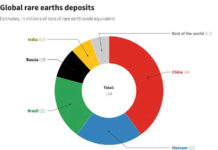The 31st WTO Trade Monitoring Report on G20 trade measures revealed that the coverage of trade restrictive measures introduced by G20 economies has significantly increased over the past year. The report indicates that there is a growing body of evidence supporting unilateral and inward-looking trade policy decisions, despite the implementation of a wide range of trade facilitation measures. Ngozi Okonjo-Iweala, the Director-General of the World Trade Organization (WTO), has issued a warning that these measures are causing uncertainty in the global economy. She has urged the governments of the Group of 20 (G20) to avoid implementing new restrictions that could exacerbate the global economic outlook.
91 new trade-restrictive and 141 trade-facilitating measures on goods were implemented by G20 economies during the review period from mid-October 2023 to mid-October 2024. These measures primarily addressed imports. USD 828.9 billion was the estimated trade coverage of trade-restrictive measures, a substantial increase from USD 246.0 billion in the previous G20 report. Conversely, the trade coverage of trade-facilitating measures increased to USD 1,069.6 billion.
The report indicates that the stockpile of G20 import restrictions, which has been amassed since 2009, will continue to expand. The estimated value of trade covered by G20 import restrictions in force for 2024 was USD 2,328 billion, which accounts for 12.7% of total G20 imports or 9.4% of world imports.
In terms of export restrictions, the review period saw the introduction of 22 new measures, a significant decrease from the annual average of approximately 50 new measures over the previous three years. Nevertheless, the scope of these export restrictions has expanded significantly.
The number of export restrictions on food, feed, and fertilizers that have been in place and not withdrawn since the outbreak of the war in Ukraine has decreased to 70, with an estimated trade coverage of USD 11.8 billion (down from USD 29.6 billion a year ago). This is a positive trend.
During the review period, G20 economies averaged 25.4 trade remedy initiations monthly, signifying the conclusion of a deceleration observed from 2021 to 2023. The monthly average of trade remedy terminations was 7.5, the lowest recorded since 2015. Trade remedy actions, especially anti-dumping measures, continued to be a primary trade policy instrument for the majority of G20 economies, representing 63% of trade measures on goods. Between mid-October 2023 and mid-October 2024, G20 economies implemented 50 new measures in services trade, of which 40% were deemed restrictive. Approximately 30% consisted of horizontal measures, affecting mode 3 (commercial presence) and mode 4 (movement of natural persons). One-fifth of the new measures pertained to Internet and other network-enabled services, as well as telecommunications services. The review period witnessed a rise in the implementation of general and economic support measures by G20 economies, corroborating findings from the OECD and IMF. The majority of initiatives concentrated on environmental, energy, and agricultural sectors.
Source: World Trade Organization (WTO), “Report shows surge in G20 trade-restrictive measures amid increased unilateral policies” available at: https://www.wto.org/english/news_e/news24_e/trdev_13nov24_e.htm






